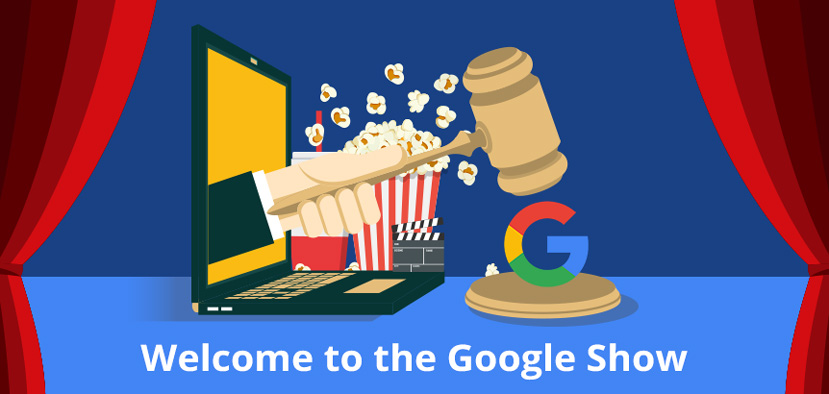The Google Show: Day One Drama
September 14, 2023
2 min 52 sec read
If you're like a lot of us, you had the popcorn ready for day one of the big Google anti-trust trial. Whether you believe Google is a bully or the best thing since sliced bread, watching them duke it out in the trial of the century (too much?) with the DOJ should be fun.

Let's peek inside the first day.
According to the Department of Justice, Google is the mafia of the Internet, paying off browser and phone manufacturers to make sure its search engine is the leader of the pack. They're operating a protection racket with pixels instead of baseball bats.
Google says it's simple. They confidently say that they are the preferred choice of consumers (let's face it, they probably are), and that's why browser and phone makers choose them.
Opening statements previewed the witnesses that will speak on behalf of Google, including economic experts and a bunch of Google executives, including CEO Sundar Pichai. There will also be a host of other tech bigwigs because it wouldn't be a party without them.
Apple's Senior Vice President of Services Eddy Cue and Mozilla CEO Mitchell Baker are also on the courtroom's guest list, along with a dazzling array of Google people in charge of advertising services and search products.
Heck, they've even invited Sridhar Ramaswamy, a former senior advertising executive for Google who later co-founded the competitor search engine Neeva. What's that all about?
After pesky opening statements, the DOJ browbeat its first witness as it began what's known as "case-in-chief." That means they presented evidence to support their claim.
The judge will allow four weeks for the DOJ to make a case against Google before the coalition of state AGs, led by Colorado, takes the stage, followed by the headline act itself, Google.
The lawyer for the DOJ questioned Google's Chief Economist Hal Varian and dusted off a 2003 memo that Varian penned titled "Thoughts on Google v Microsoft." In the memo, Varian brought up anti-trust concerns with the ringleaders of Google and suggested, "be careful about what we say in both public and private."
Okay, that sounds a little James-Bondish.
In his opening statement to the court, the DOJ's lawyer, Kenneth Dintzer, inserted dramatically, "This case is about the future of the Internet and whether Google's search engine will ever face meaningful competition."
Ouch.
Dintzer says that Google has more than 89% of the general search market and that consumers use general search as an "onramp to the internet."
CNBC reports DOJ claims that Google keeps its big-boy status by
using a feedback loop, making it harder for competitors to enter the playing field. They say Google pays for defaults, which in turn means more queries for them, which equates to more data that they can use to improve search quality, which then helps them pocket more cash.
More cash, of course, means more resources to pay for default status.
Are you out of breath yet?
The DOJ alleges that Google has paid $10 billion annually to maintain default status across browsers and devices and adds that Google referred to losing default status with Apple as a "code-red situation."
The hits kept coming as the DOJ rolled out hints about what we'd hear in the coming weeks, including Google's alleged document destruction and how Google taught employees to hide evidence through a cute program called "Communicate With Care."
Other gems included claims that Google pulled hijinks to "limit Apple's ability to design products that compete with them (Google)" and focus on a revenue-sharing program to sweeten the pot.
The DOJ says evidence will show that manufacturers only accepted deals with Google because they were strong-armed and had no other options.
Google insists the motivation is a return on investment and that manufacturers would happily jump ship if money were to be made elsewhere.
Google says that browser and device makers like default features for many reasons, stating that "search engines are a reason for consumers to use their interface."
And they claim revenue-sharing is a great way for browsers to make money since they are usually free to consumers.
There are at least ten weeks of the "Google Court Show" ahead of us, with plenty of nail-biting action. It's too early to tell what will happen, but we can always Google the results.
Want to read this in Spanish?
Spanish Version >>
